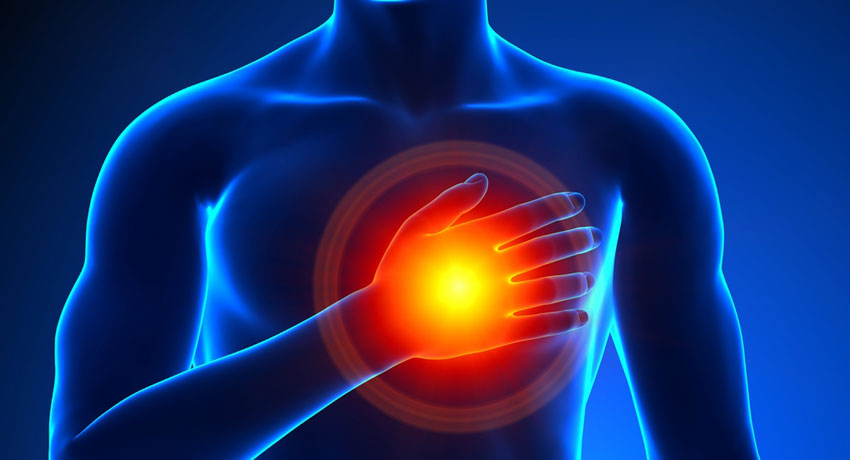Why Heart Attacks Happen In The Morning

Heart pain image via shutterstock
What’s your morning routine? Maybe you get up early and squeeze in some morning yoga before work, or maybe you sleep through all three of your alarms because you’re subconsciously stressed. Maybe you make yourself some coffee and eat a bagel at your kitchen table, or maybe you make some matcha tea to go. Whatever your morning looks like, there’s one thing we all have in common early in the morning: our bodies could be preparing to have a heart attack.
In a new study, researchers at Brigham and Women’s Hospital and the Oregon Health & Science University have discovered that the prevalence of morning heart attacks could be caused by your body’s internal clock.
The body’s circadian system, colloquially known as our internal clock, is responsible for regulating the timing of the feelings of wakefulness and tiredness throughout the day. The rhythm of the circadian system dips and rises throughout the day and results in increases and decreases in certain chemicals in your brain and cells in your blood.
Researchers found that at around 6:30 a.m. the circadian system sends out an increased amount of PAI-1 cells which blocks blood clots from breaking down. The more PAI-1 cells in the blood, the higher the risk for a blood clot that leads to a heart attack.
The study examined 12 healthy adults over a two-week period. The volunteers were put through a laboratory protocol that involved desynchronizing daily behavioral and environmental rhythms from internal clock circadian system rhythms. Researchers wanted to know if the cause for increased amount of PAI-1 was related to the circadian system or morning behaviors like altered posture and decreased physical activity. The results indicated that an increased circadian rhythm pumps more PAI-i into the bloodstream, thus increasing the risk of morning heart attacks.
Dr. Frank Scheer, director of the Medical Chronobiology Program at Brigham and Women’s and co-author of the paper, said in a press release:
“Our findings suggest that the circadian system, or the internal body clock, may contribute to the increased risk for cardiovascular events in the morning.”


